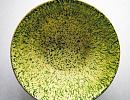Contact Seller
Lily Antiques
Tel07485 660921Please quote Antiques Atlas.

 Huge 19th C Terracotta Glazed Bowl
Huge 19th C Terracotta Glazed Bowl
 Mid 18 century French terracotta bowl
Mid 18 century French terracotta bowl
 Ceramic owl vintage from Sweden
Ceramic owl vintage from Sweden
 Large Antique Quality Relief Moulded Jug
Large Antique Quality Relief Moulded Jug
 A Pair Of French Terracotta Crying Children
A Pair Of French Terracotta Crying Children
 Watcombe Terracotta Lidded Pot
Watcombe Terracotta Lidded Pot
 Impressive Pair of Chinese Terracotta Fo Dogs
Impressive Pair of Chinese Terracotta Fo Dogs
 Large 18th/ 19th c. Italian or French print block
Large 18th/ 19th c. Italian or French print block
 Aller Vale Boer War Mug
Aller Vale Boer War Mug
 Large 18th Century terracotta pitcher / jug
Large 18th Century terracotta pitcher / jug
 Large U.Cipriani Art Deco Terracotta Children 1920
Large U.Cipriani Art Deco Terracotta Children 1920
 Set of Three Bright Red Terracotta Dutch Bowls
Set of Three Bright Red Terracotta Dutch Bowls
Non UK callers :
+44 7485 660921
Antique 19th Century Italian Colapasta / Colander

Antique 19th century terracotta cream glazed Colapasta or colander from Puglia southern Italy. Once used to drain pasta.
25cm diameter x 10cm high These are handmade antique items of pottery that were once used in the home and are absolutely imperfect so please expect imperfect condition with some cracks and chips that you would expect from an item of its age and previous domestic use. These were never created as fine pottery pieces they were handcrafted in local village potteries to store precious food supplies and were often used for generations to store and give longevity to the perishable contents.
Please note that the colours displayed on a PC screen may not be 100% representative of the actual items colour.
SellerLily Antiques
View all stock from
Lily Antiques

 Private dealer
Private dealer
By appointment only
Malmesbury
Wiltshire
Tel : 07485 660921
Non UK callers : +44 7485 660921
25cm diameter x 10cm high These are handmade antique items of pottery that were once used in the home and are absolutely imperfect so please expect imperfect condition with some cracks and chips that you would expect from an item of its age and previous domestic use. These were never created as fine pottery pieces they were handcrafted in local village potteries to store precious food supplies and were often used for generations to store and give longevity to the perishable contents.
Please note that the colours displayed on a PC screen may not be 100% representative of the actual items colour.
Price
Click here to message the seller The price has been listed in British Pounds.
Conversion rates as of 2/MAY/2024. Euro & Dollar prices will vary and should only be used as a guide.
Always confirm final price with dealer.
Date 19th Century
19th Century Antiques Material Terracotta
Origin Italian
Item code as1053a004
Status For Sale
£180.00 
$224.73
€210.26

$224.73

€210.26

Looking to Buy?
Arrange a final price and delivery details directly with the dealerClick here to message the seller
Conversion rates as of 2/MAY/2024. Euro & Dollar prices will vary and should only be used as a guide.
Always confirm final price with dealer.
Shipping information
Due to the fragility of these items, we will ship your order in a very large box with a large amount of packaging. Please contact us for shipping costs.
View all stock from
Lily Antiques

 Private dealer
Private dealerBy appointment only
Malmesbury
Wiltshire
Tel : 07485 660921
Non UK callers : +44 7485 660921
You may also be interested in
 Huge 19th C Terracotta Glazed Bowl
Huge 19th C Terracotta Glazed Bowl
 Mid 18 century French terracotta bowl
Mid 18 century French terracotta bowl
 Ceramic owl vintage from Sweden
Ceramic owl vintage from Sweden
 Large Antique Quality Relief Moulded Jug
Large Antique Quality Relief Moulded Jug
 A Pair Of French Terracotta Crying Children
A Pair Of French Terracotta Crying Children
 Watcombe Terracotta Lidded Pot
Watcombe Terracotta Lidded Pot
 Impressive Pair of Chinese Terracotta Fo Dogs
Impressive Pair of Chinese Terracotta Fo Dogs
 Large 18th/ 19th c. Italian or French print block
Large 18th/ 19th c. Italian or French print block
 Aller Vale Boer War Mug
Aller Vale Boer War Mug
 Large 18th Century terracotta pitcher / jug
Large 18th Century terracotta pitcher / jug
 Large U.Cipriani Art Deco Terracotta Children 1920
Large U.Cipriani Art Deco Terracotta Children 1920
 Set of Three Bright Red Terracotta Dutch Bowls
Set of Three Bright Red Terracotta Dutch Bowls



